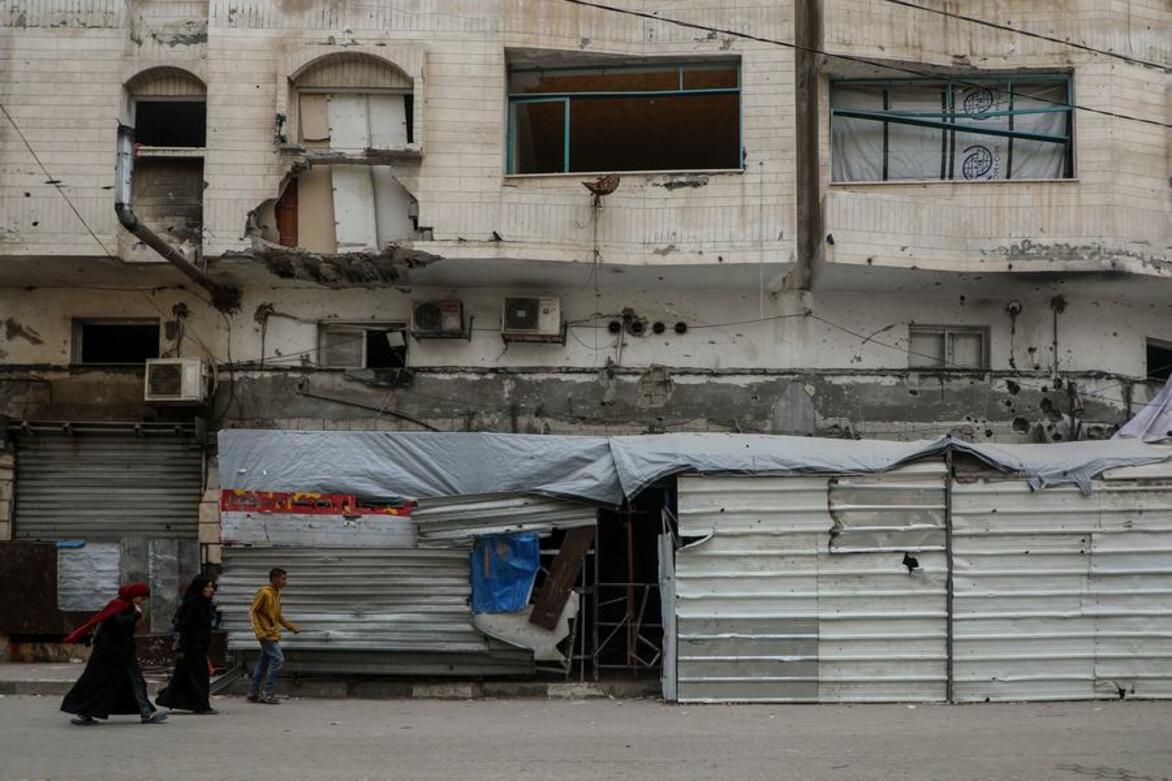Gaza faces famine as bakeries close, aid stalls
Xinhua
03 Apr 2025

GAZA, April 2 (Xinhua) -- On the rubble-strewn streets of Gaza City, Woroud Abdul Hadi walked past shuttered storefronts. The familiar scent of freshly baked bread-once a daily comfort-had vanished. In its place hung the acrid sting of dust and despair.
"Bread is life here, but now even that is gone," said Abdul Hadi, 35, a mother of five, her voice trembling. "Worse still, I have no flour to feed my children."
Her anguish echoes across Gaza, where all 25 bakeries supported by the United Nations World Food Program (WFP) have shut down, the agency announced Tuesday. The closures, caused by Israel's prolonged border shutdown, have blocked deliveries of fuel and flour, crippling aid groups' ability to replenish dwindling food supplies.
The crisis has deepened since Israel resumed air and ground operations on March 18, further displacing families already cut off from humanitarian support.
With flour prices soaring to 100 U.S. dollars for a 25-kilogram bag -- an impossible sum for most in the impoverished enclave -- desperate households resort to grinding dried grains or baking potatoes, stopgap measures that offer little nutrition.
"We are witnessing a collapse of the most basic lifelines," said Amjad al-Shawa, head of the Gaza Non-Governmental Organizations Network. "Hundreds of thousands now face food insecurity, with no way to secure even the necessities."
For Gaza, the absence of bread, which is a dietary cornerstone, signals a perilous tipping point. Palestinian officials warn of an "unprecedented deterioration" in living conditions.
"My children ask why there is no bread, but I have no answer," Abdul Hadi said. "It was our only source of hope. Now even that is gone."
In northern Gaza's Beit Lahia, Wafaa Abu Hajir, a mother of seven, stared at a pot of boiled vegetables. "How can we live without bread?" she asked.
"I can't tell my children what we'll eat tomorrow," she said. "Aid isn't arriving. The crossings are closed. We are starving."
Abdel Nasser al-Ajrami, head of the Gaza Bakeries Association, warned of a "real threat of famine."
"The humanitarian suffering in Gaza has reached unprecedented levels," al-Shawa said, emphasizing the urgent need for open crossings and aid deliveries.
Israel launched a large-scale aerial bombardment of Gaza on March 18, killing more than 1,000 Palestinians and wounding over 2,000, in an offensive that shattered a fragile ceasefire and a prisoner exchange agreement with Hamas.
The assault plunged the enclave back into bloodshed after a brief pause in a 17-month conflict that claimed around 50,000 lives in the enclave of around 2 million. For many in Gaza, the attack crushed hopes for a respite from the relentless cycle of war.
